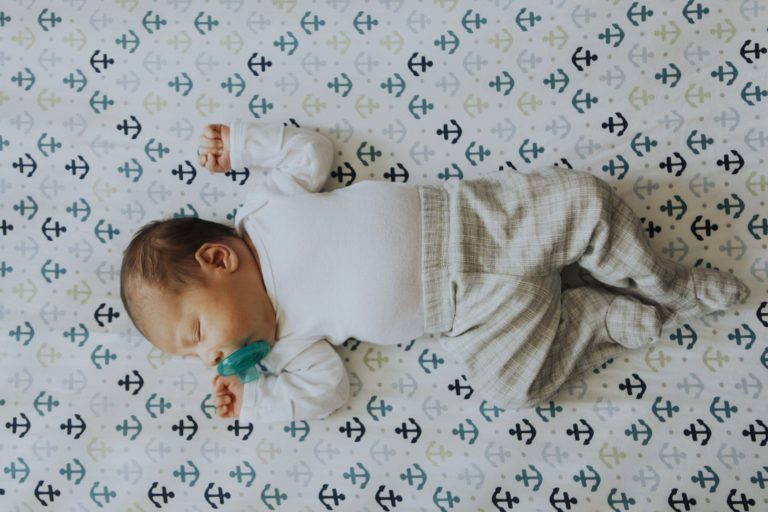Well, if it’s not safe, how can stores sell them?” My daughter, a mother of two, had a good point. Most of us walk into the baby section of a store and assume if it’s on the self, it must be safe. While this is a reasonable expectation, it’s not always true. Sometimes, what appears to be safe turns out not to be, and it often takes a long time before we realize the dangers of a product. There are a lot of risky products created to supposedly make your baby sleep safer or more comfortable. The reality is many of those products can lead to accidental suffocation and sudden infant death syndrome (SIDS). While experts acknowledge that not all SIDS deaths can be avoided, research shows that most SIDS and suffocation deaths can be prevented. So what are the new infant sleep rules?
New Infant Product Rules
The U.S. Consumer Product Safety Commission (CPSC), the government agency responsible for ensuring products sold to the public are safe, has approved a new federal rule intended to ensure certain infant sleep products are indeed safe. These new safety standards will take effect in mid-2022. When the rule goes into effect, all sleep products will have to meet these new standards, which will apply to cribs, bassinets, cradles, playards (pack’n plays), and similar products. The American Academy of Pediatrics has already warned against these types of products, advising that baby’s safe sleep environment only include a crib with a mattress, a tight-fitted sheet, and baby appropriately dressed for sleep on their back.
Sleep products that are currently on the market that likely won’t meet the new safety standards include:
- inclined sleep products (any item where the head is inclined greater than 10 degrees)
- in-bed co-sleepers including baby“nests,” “pods,” and “docks”
- travel and compact bassinets
It’s best to steer clear of these products starting now.
Avoid These Infant Products
- Baby loungers or gliders
- Sleep positioners, wedges, or other devices meant to keep baby from moving
- Nursing pillows (in sleep area)
- Hammocks
- Bumper pads (these may soon be taken off the market completely)
- Baby mattresses that are not specific for infants (mattresses need to be firm)
- Baby nests, pods, docks
- Inclined sleeper products
- Monitors and other products that promise to protect baby from SIDS
Car Seats, Swings and Strollers
The new standards do not apply to non-sleep products such as car seats and swings that aren’t marketed for sleep, but none-the-less do get slept in. Parents are reminded here to move your infant to a safe sleep location as soon as they can and not routinely use these products for sleep. The new federal rule also does not address other infant sleep recommendations such as the dangers of bed-sharing, bumper pads, overheating, or fluffy items in the crib. Until the new rule is published, learn the current safety recommendations are for infant sleep, and take a careful – even critical – look before buying products. Be cautious when buying other products as well, as some intended for play (such as baby loungers and swings) so often end up with a sleeping baby inside! Check for recalls on products you regularly use with your baby and sign up for alerts at the CPSC.gov. Finally, when in doubt, just don’t purchase it! While we can safely assume no company ever sets out to purposely harm a baby, sometimes what seems to be perfectly safe at the start, ends up not being so.
Safe Sleep Recommendations from the American Academy of Pediatrics
- Avoid sleeping with your baby, especially on a couch or recliner
- Back-only position – never position baby on their stomach or side. Do not use wedges or other devices to keep them on their back
- Keep the crib empty of everything except the baby – use sleep sacks. or sleeper pajamas instead of blankets. No stuffed animals, bumper pads, or toys. Bare is best!
- Have baby sleep in the same room with you in bassinet or crib for at least 6 months
- Keep the room cool to prevent baby from overheating
- Do not smoke around the baby
- Avoid alcohol and any mindalteringdrugs (legal or not), including sleep aids
- Breastfeed as much as possible – this helps prevent SIDS
- Offer a pacifier (after breastfeeding is going well) – this helps prevent SIDS too
- Immunize and take infant to all well-baby checks – yep, this is protective as well!
- Don’t forget tummy time – babies need time on their stomachs when they are awake and supervised
- Make sure everyone who cares for your baby knows these safe sleep rules!
YOU MAY ALSO LIKE: ABCs of Safe Baby Sleep






Comments are closed.